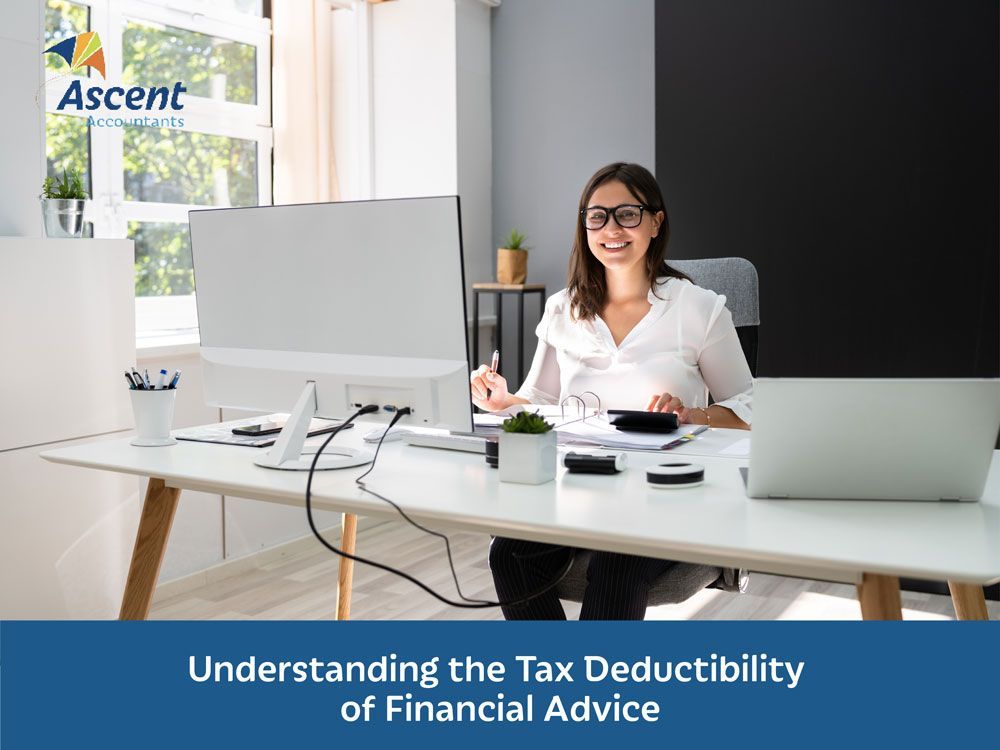Understanding the Tax Deductibility of Financial Advice

Navigating the complexities of tax deductibility when it comes to financial advice can be daunting for many investors. With the constant ebb and flow of regulations, having a clear grasp of the landscape is paramount.
General Principles of Deductibility
As if things aren’t already confusing enough, there's a distinct absence of specific rules around the deductibility of financial advice fees. Instead, the general deductibility rules are applied. For an expense to be deductible:
- It should relate to generating or producing taxable (or "assessable") income.
- It shouldn't be capital, personal, or for domestic purposes.
- It shouldn't be linked with exempt income.
- The tax laws must not explicitly exclude it.
Take a look at two examples
Super Contributions
Personal contributions to superannuation typically fall into the non-deductible category due to their private nature. However, the tax laws carve out certain exceptions, making some of these contributions deductible if specific conditions are met.
Super Fund Pension Income
Earnings from pension income in a super fund are exempt. Therefore, expenses associated with generating this income are not deductible.
Diving deeper into financial advice fees
1. Initial Setup of Investment Portfolio & Financial Plans
This is considered capital expenditure and thus, not deductible. The ATO's 1995 Tax Determination (TD 95/60) specifically addressed this, indicating a lack of sufficient connection between setting up investments and the subsequent income generation.
2. Ongoing Management of Investment Portfolios
Fees related to the upkeep and review of an existing investment portfolio generally qualify for deductions as they relate to ongoing income generation. However, advice that touches upon non-income aspects, such as insurance premiums or pension assets, may only see partial deductibility.
3. Investment Loan Arranging Fees
Classified as borrowing expenses, they’re deductible over the shorter of five years or the loan's lifespan. Crucially, the primary objective of the loan should be for income generation that is subject to tax.
4. Cashflow and Ancillary Advisory Services
Areas like cashflow management or insurance advisory don't correlate directly with taxable income generation, making their fees non-deductible.
5. Commissions
These are not directly borne by the investor, so they don't qualify for deductions.
Optimising deductions
Having financial advisers who itemise their fees can greatly simplify the process of claiming deductions. In situations where this isn't feasible, the ATO has shown flexibility in accepting reasonable approximations.
Over the years, the financial advice sector has been lobbying for a more inclusive approach to deductibility, especially encompassing all advice fees. This persistent endeavour, though not yet fruitful, indicates the industry's commitment to enhancing investor benefits.
Other potentially deductible costs
The ATO's tax ruling (TR 93/17) enumerates several expenses related to superannuation funds that are usually deductible. These range from audit fees to investment advisory costs and more.
Consult an expert
With the ever-evolving tax regulations, it's crucial for investors to stay updated with changes, especially those related to deductibility. As the regulatory landscape shifts, continuous learning and seeking expert guidance becomes the way forward.
That’s where we come in — Ascent Accountants are here to help you make the most of your deductions. If you have any questions or need advice, please don't hesitate to
contact us.
Need help with your accounting?








